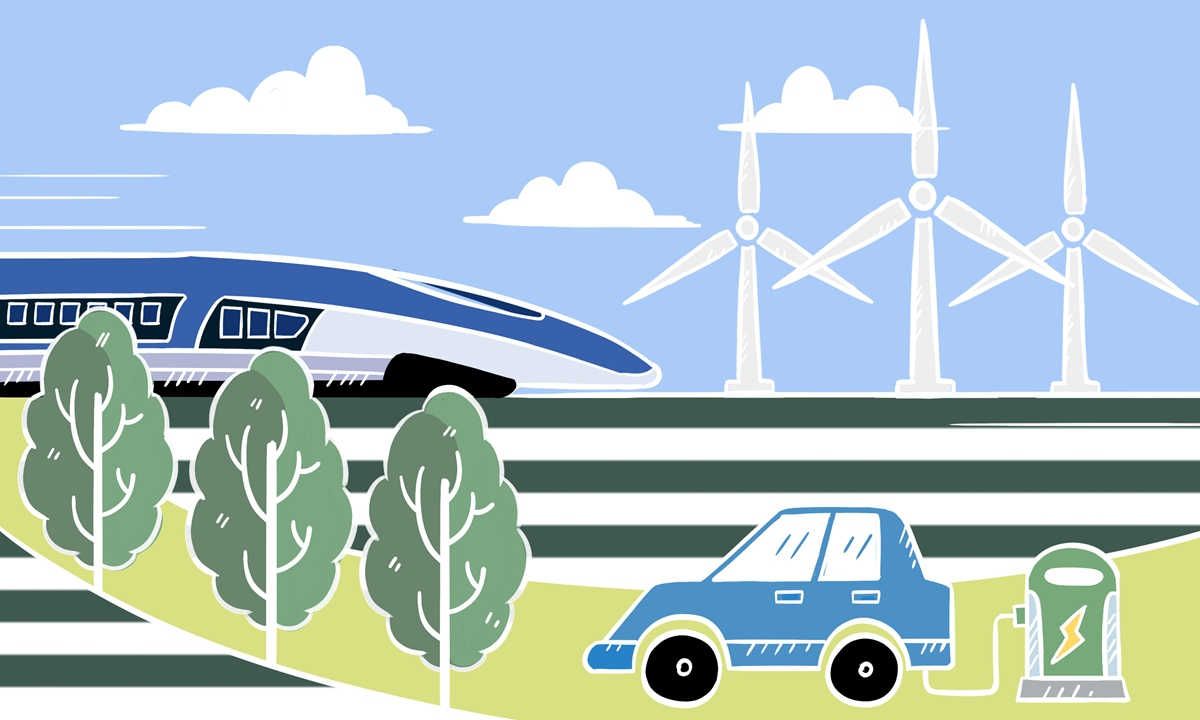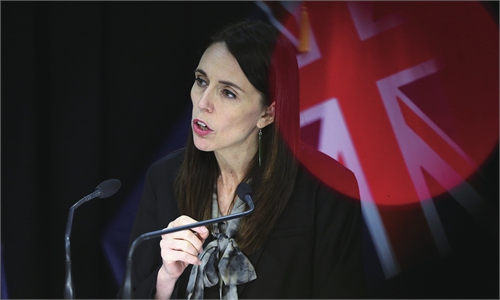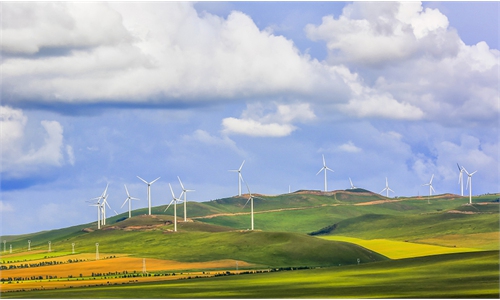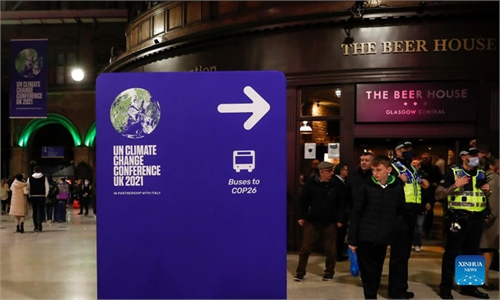
Illustration: Chen Xia/Global Times
The 26th UN climate conference (COP26) on Sunday kicked off in Glasgow, UK, which, amid this year's frequently emerged disastrous weather across the world, has become a wrestling match between the developed and developing countries. As the third largest carbon dioxide (CO2) emitter, India, wooed by the West on many international topics, is not spared from the pressure imposed by the rich countries.In response, India has resolutely rejected to offer a net zero emissions target, arguing such goals were not the solution to the climate crisis. Indian Environment Minister Bhupender Yadav was cited by media outlets as saying that historical blame for the climate crisis lay squarely with the world's most developed countries.
Truly, the responsibilities of the industrialized rich countries take no more discussion given the released CO2 stays in the air for the past 200 years that may impact Earth's climate pattern for thousands of years. Not only the developed economies have failed to fulfill their own carbon reduction targets in recent years, they have shown an increasingly brazen intention to weaponize the topic to deflect their own obligations and attempt to use the issue to slow down economic development of other countries, such as India.
The developing countries started industrial transformation much later than the Western industrialized countries. It is unfair to mount pressure on them to sacrifice their growth and pay for the environmental debt that was caused by the rich countries.
As for India which views itself as a close partner of the West, the south Asian nation obviously has not been well treated by the West. After being exploited by British colonists for hundreds of years, India now has become a target in the eyes of the West to share their duties on emissions reduction.
India has stated its per capita carbon emissions remains low. According to data tracking platform Worldometers, India recorded a 1.91-tons of CO2 emissions per person, much lower than the world's average 4.79 tons, and the US' 15.52 tons.
Instead of offering a net zero emissions deadline like many other countries have done, India is likely to emphasize lessening carbon emissions at the Glasgow summit, local media reported. The Western developed countries, especially the UK, should consider India's situation in the context of its development, instead of selfishly attempting to deflect their own responsibilities.
There's no denying that tackling the climate change crisis needs efforts from all nations on the planet. As the world's largest developing country, China has been leading the response to the global issue, including its pledge to have CO2 emissions peaking before 2030 and achieving carbon neutrality before 2060. The country has also announced to halt building new coal-fired power projects overseas and will step up support for other developing countries in developing green and low-carbon new energies.
The developed rich countries should make more efforts to reduce greenhouse gas emissions, fulfilling their responsibilities first and helping the developing countries to develop green energy, rather than lecturing others.
The global climate crisis is a shared challenge for the whole mankind, and we genuinely expect that everyone in the world could shoulder its own responsibility and quit using it as a political tool to pressure developing countries.



